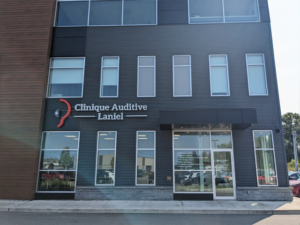Hearing aids are technological devices that have made tremendous strides in recent years. Yet, many myths persist about them, sometimes preventing those affected from fully benefiting from these devices. Let’s explore together the most common misconceptions and the reality behind them.
Myth #1: Hearing aids are ugly and noticeable
Reality: Hearing aids have evolved considerably in terms of design and size. Today, there are almost invisible in-the-ear models and discreet and aesthetic behind-the-ear models. Manufacturers offer a wide range of colors and finishes to suit all styles.
Myth #2: Hearing aids are expensive
Reality: While purchasing a hearing aid is an investment, many financing solutions exist to make this purchase more affordable. Social security, complementary insurance, and specific grants can cover a significant portion of the cost. Additionally, audiologists often offer personalized financing solutions.
Myth #3: Hearing aids don’t work
Reality: Modern hearing aids are powerful devices capable of amplifying sounds and reducing background noise. They are equipped with advanced technologies that allow for precise customization to meet the needs of each user. Of course, it is important to choose the model adapted to your type of hearing loss and to follow the audiologist’s advice for optimal use.
Myth #4: Hearing aids make your ear lazy
Reality: Quite the opposite! Wearing a hearing aid stimulates the ear and helps maintain auditory functions. By depriving the ear of sound stimulation, you are more likely to see its auditory capabilities deteriorate more rapidly.
Myth #5: Hearing aids are reserved for the elderly
Reality: Hearing loss can affect people of all ages, including children and young adults. Hearing aids are tools suitable for all ages and can significantly improve quality of life.
Conclusion
Hearing aids are no longer the bulky and unattractive devices of the past. They have become discreet and powerful tools, capable of transforming the daily lives of millions of people. If you have any doubts or questions, do not hesitate to consult an audiologist. They will be able to advise you and guide you in choosing the solution best suited to your needs.








